"Geyue's 'Collapse' Should Not Impose Unlimited Joint and Several Liability on Investors
![]() 12/23 2024
12/23 2024
![]() 480
480
Baker Street Detective
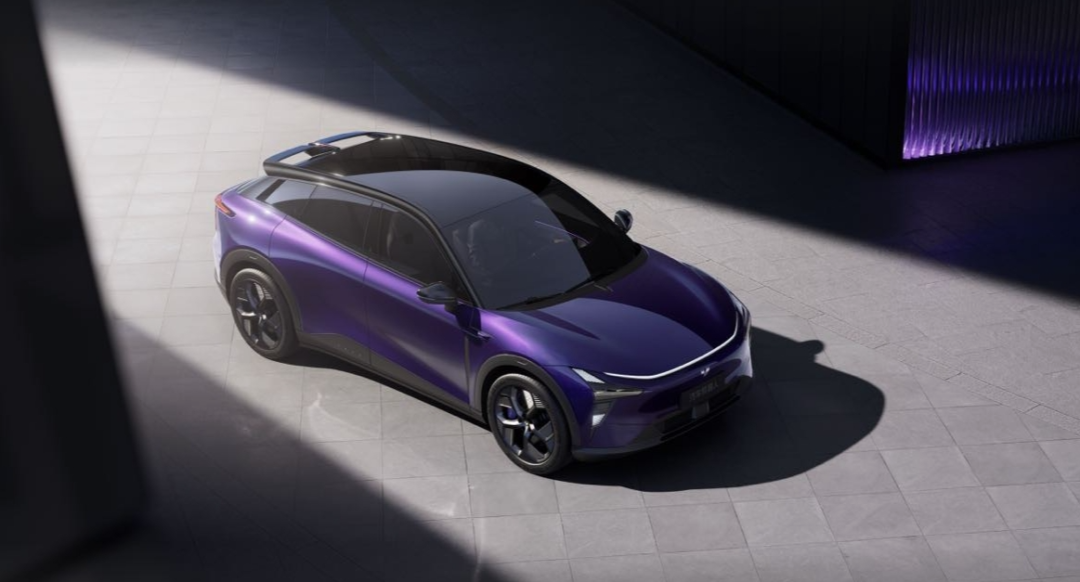
With investors stepping in, Geyue's 'collapse' has come to an end.
On the afternoon of December 19th, a leaked document outlining a plan to address the aftermath of Geyue's collapse circulated online. The document revealed that, under the guidance and supervision of relevant government departments, a jointly managed regulatory account has been established to cover relevant expenses on behalf of Geyue employees. The initial funds for this account were injected by Baidu and Geely.
Meanwhile, media reports indicated that Baidu and Geely completed the transfer process on December 12th to pay Geyue employees' November social security contributions.
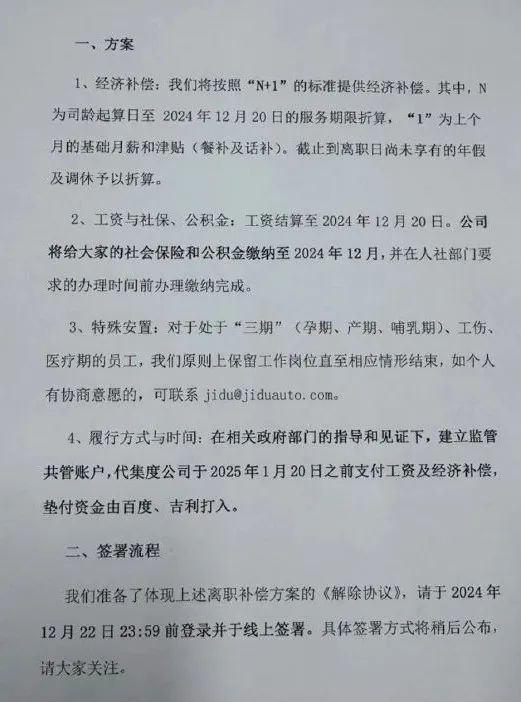
In this scenario, Baidu and Geely, as investors, stepped in to address the concerns of employees, a vulnerable group. This action stems not only from a social responsibility that transcends legal obligations but also from the corporate responsibility of large enterprises.
However, the Geyue incident also raises a practical question worthy of reflection: In a market economy, should investors bear unlimited joint and several liability for independently operated companies?
The answer is unequivocally no.
As a limited liability company, Geyue is responsible for its debts with all its assets, while investors are only liable up to the amount of their capital contributions.
The interests of all parties should be protected in accordance with the law.
Geyue's collapse serves as a wake-up call for the investment industry, raising the question of who will step in when a company is struggling.
According to the Company Law, a company's issues should primarily be resolved by the company itself. Investors are not required to bear related expenses or unlimited joint and several liability for Geyue's debts.
This means that, as an independent limited liability company, Geyue Automobile, even if investors Baidu and Geely have injected funds in different proportions, once insolvency occurs after paid-in capital, shareholders are not obliged to contribute additional funds. Their liability is limited to the registered capital.
Particularly when it comes to compensation liability, the handling differs between legal entities and natural persons, and society must view this difference rationally.
Simultaneously, as an independent business entity, Geyue's debt settlement with suppliers and other legal entities should be based on laws such as the Civil Code and the Company Law, with liquidation conducted through legal procedures and debts with suppliers handled accordingly.
In other words, if Geyue is poorly managed, it should, theoretically, undergo bankruptcy liquidation, with remaining assets liquidated to the greatest extent possible to prioritize employee compensation. The remaining assets are then settled with suppliers and other legal entities through legal procedures. If there is truly no money left, this is a business risk and sunk cost that entities must bear in a market economy, rather than shifting responsibility to investors.
In a market economy, the relationship between investors and the limited liability companies they invest in is not one of 'the son's debt being repaid by the father.' Whether it's employees, suppliers, or investors, their legally protected rights must be safeguarded.
Providing a safety net for intelligent driving and map navigation, serving as a competent 'technology partner'
Notably, despite being frequently 'blamed' by Geyue, Baidu and Geely, as investors, are still actively addressing user concerns.
After Geyue's collapse, on December 14th, Wang Yunpeng, Vice President of Baidu Group and President of the Intelligent Driving Group, updated his WeChat Moments, stating, 'We have already taken action. Intelligent driving and map navigation are covered by us, so Geyue car owners can rest assured.'
Early on the morning of the 19th, Li Tao, head of operations management at Baidu IDG, also posted that Geyue's ASD and map navigation services are covered by Baidu and will not be discontinued. Currently, relevant personnel from the Baidu Cloud team have closely collaborated with the Geyue technical team to streamline redundant resources and ensure service continuity. Currently, SMS verification codes and other APP functions have been restored for use.
Regarding the highly anticipated high-precision RTK service, Li Tao revealed that the IDG team has taken over and assured that there will be no situation where 'intelligent driving becomes unusable due to RTK failure.'
'Geyue was always just one of many customers in the mapping business. Maintaining normal updates is not difficult, and users can rest assured.'
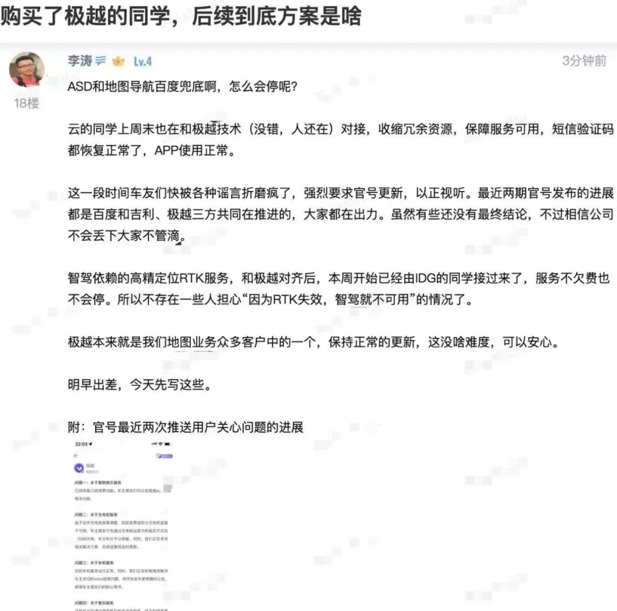
According to insiders, for the ongoing maintenance of intelligent driving and cockpits alone, Baidu will need to invest tens of millions of dollars annually.
Post-Geyue, the industry has also witnessed Baidu Apollo's comprehensive layout in the field of 'driving, cockpit, and mapping' and the development trend of automotive intelligence.
01 Pure vision-based advanced intelligent driving becomes a trend
This year, relying on the pure vision-based advanced intelligent driving solution provided by Baidu Apollo, Geyue ranked first in the overall rankings with an average score of 91.88 in 12 intelligent driving competitions held in Beijing, Hangzhou, Shanghai, Shenzhen, Wuhan, Chongqing, Chengdu, Guangzhou, Zhuhai, Zhongshan, Foshan, and Dongguan.
In the sub-stages of Beijing, Hangzhou, Shanghai, and Guangzhou, Geyue won four championships and placed in the top three in seven other competitions. Notably, all other competing models used lidar, making Geyue the only participant throughout using a pure vision-based advanced intelligent driving solution.
It is understood that the ASD solution equipped on Geyue shares the same origin as the L4-level autonomous driving system used in Luobo Kuapai, both based on the Apollo ADFM, a large model for autonomous driving.
In May of this year, Baidu Apollo released Apollo ADFM, the world's first large model capable of supporting L4-level driverless applications. Reconstructing driverless technology based on this large model can ensure both safety and generalization, achieving a safety level more than ten times higher than that of human drivers and covering complex urban scenarios on a city-wide scale.
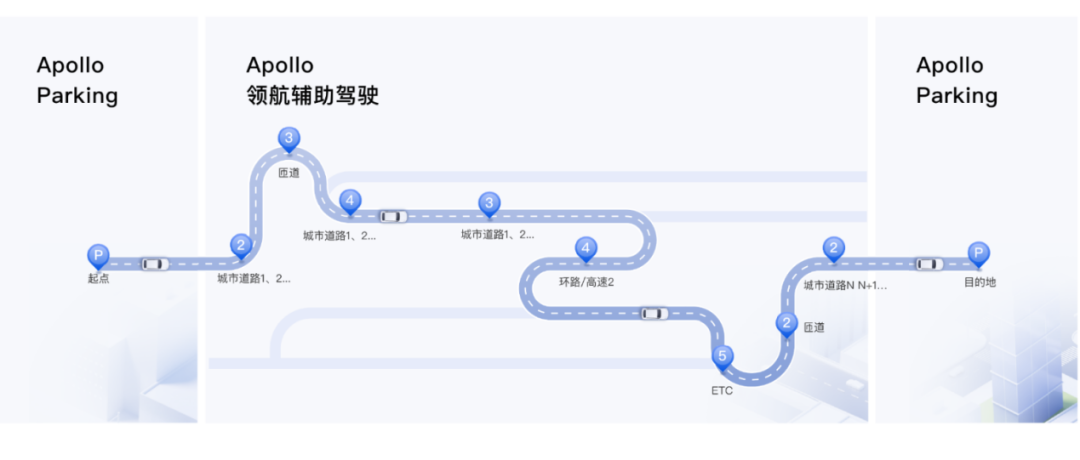
Notably, starting with Tesla and Baidu Apollo, the value of pure vision-based solutions has been recognized by an increasing number of domestic automotive enterprises. Xpeng, Huawei ADS SE (Basic Edition), NIO NIO Life OSD, and autonomous driving system providers such as WeRide have also introduced pure vision-based solutions. Lower costs and continuous innovation in large model + end-to-end algorithm technology are the core drivers for major enterprises to deploy pure vision-based solutions. It is expected that the mass adoption of pure vision-based solutions will rapidly increase the penetration rate of advanced intelligent driving. Enterprises with first-mover advantages in this field are expected to achieve scalable applications faster.
02 A more user-friendly intelligent cockpit can further enhance the driving and riding experience
Advanced intelligent driving systems can directly assist drivers effortlessly, even allowing them to experience the more humanized human-computer interaction provided by intelligent cockpits. Meanwhile, for passengers, a more user-friendly intelligent cockpit can further enhance the driving and riding experience.
Similar to the classification of intelligent driving, intelligent cockpits are also graded based on their human-computer interaction, online services, usage scenarios, and other characteristics. Considering the current market, intelligent cockpits at the L2 level (partial cognition) are currently undergoing large-scale market popularization. They possess the ability to actively perceive the cabin environment in some scenarios, partially execute cabin functions, and generally provide cloud services capable of continuous upgrades. Intelligent cockpits at the L3 level (advanced cognition) are expected to enter the market in 2025.
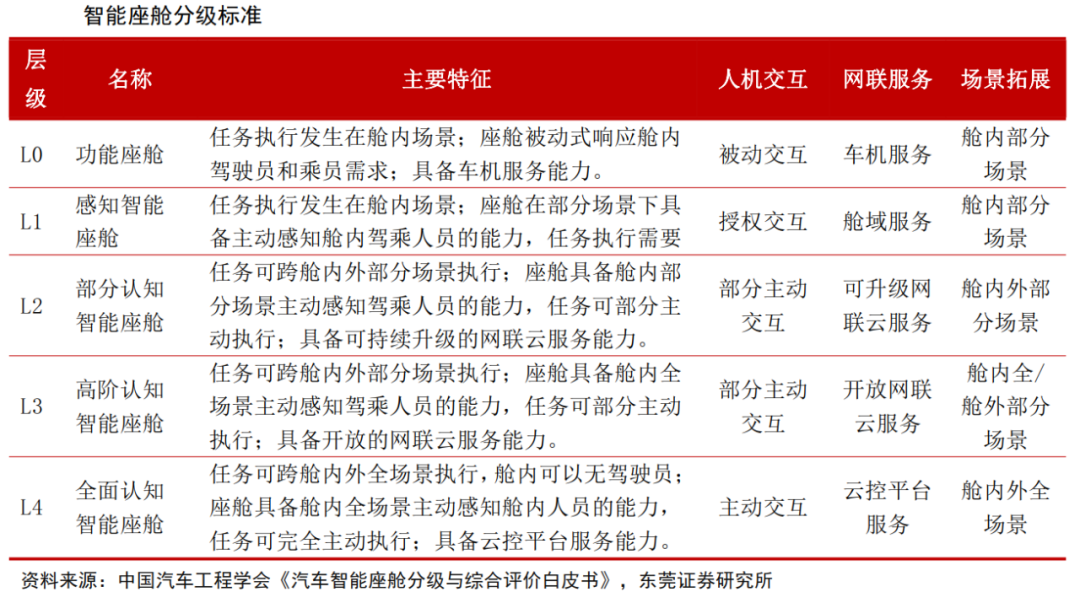
As an important carrier of cabin interiors, automotive electronics, intelligent driving, and the Internet of Vehicles, intelligent cockpits occupy a crucial position in the current trend of automotive intelligence transformation and are also a competitive advantage for various car brands. The scale of China's intelligent cockpit market is expected to grow rapidly, reaching 212.7 billion yuan by 2026, with a compound annual growth rate of over 17% over five years.
The human-computer interaction system for intelligent cockpits is the most mature link in the industry chain and has the strongest heritage from the consumer electronics field. The success of new energy vehicles in overtaking traditional vehicles is beginning to show results, with domestic brands such as BYD and Geely significantly increasing their market share, which is expected to significantly accelerate the increase in market share for domestic suppliers upstream.
Taking Geely as an example, the Geely Yinhe L6, released earlier this year, is equipped with intelligent cockpit products from Baidu. These include Baidu Apollo's full-stack intelligent cockpit solution, which encompasses DuerOS for Auto and the DuerOS Auto Voice SDK. Among them, DuerOS for Auto, developed based on the ERNIE Bot large model, can be integrated with the DuerOS Auto Voice SDK and other cockpit infrastructure to provide passengers with a more enhanced human-computer interaction experience and more natural intelligent assistant services.
An intelligent cockpit integrated with a large model will become smarter, not only capable of conversing with drivers and passengers but also able to provide more accurate answers or feedback through large model search and analysis. It can even understand vague referential commands issued during voice interactions with drivers and passengers. Compared to other 'intelligent cockpits' currently on the market that can only interact through explicit command-based instructions and have limited ability to process ambiguous commands, Baidu's intelligent cockpit, which integrates DuerOS for Auto and the DuerOS Auto Voice SDK, clearly meets the 'intelligent' standards expected by the general public.
03 Intelligent maps allow users to truly get rid of phone mounts
In addition to intelligent driving and intelligent cockpits, which can directly enhance the driving and riding experience, Baidu officially released the V20 version of its integrated handheld and in-car navigation system in April. This version includes four products: Basic Edition, 3D Leading Edition, 3D Flagship Edition, and SR Intelligent Driving Edition, realizing integration between handheld and in-car devices and making the in-car map as user-friendly as the mobile map. Currently, Baidu Maps has successfully entered the product lines of leading smart car companies such as BYD and Great Wall Motors, as well as technology enterprises like Huawei.
More intelligent map navigation products can help drivers quickly resolve location-related issues such as where they are, where they are going, and which lane to take on which road. With features like personalized voice packs, true lane-level navigation, real-time traffic light information, real-time maps, and full system interoperability, Baidu Maps offers an in-car map that is even better than mobile maps for automotive users.
From the results, as part of the automotive industry chain, Baidu Apollo is also considering how to keep up with the rapidly changing market environment. Through technological innovation, it aims to help automakers address pain points and provide users with reassuring, user-friendly, and cost-effective intelligent products.
© THE END
All materials are from official public sources
This article does not constitute any investment advice.








